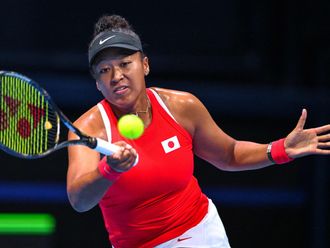Wellington: New Zealand is not to blame for the problems that are forcing Australia to axe one of its five Super Rugby teams, New Zealand Rugby boss Steve Tew said on Monday.
Amid anger and finger-pointing on the Australian side of the Tasman over the decision announced Sunday, Tew admitted Super Rugby over-reached by expanding to 18 teams last year.
But he denied reports in Australia that New Zealand was the driving force in pruning the competition back to 15 teams and had insisted one Aussie team must go.
“There will be pain and there’s going to be a lot more emotive commentary in Australia and it’s not unusual for us to get the blame,” Tew told Radio Sport.
Tew said the SANZAAR nations that run the competition made a collective decision, adding: “We had the figures in front of us, that’s what some of the more emotive commentary won’t take into account.”
He said viewer numbers in Australia and South Africa were concerning in the first year of the expanded competition, then “plummeted” this season.
In addition, he said market research had shown fans were concerned about too many lop-sided mismatches, reinforcing the need to revamp the competition.
Under the new structure, there will be 15 teams, with two cut from South Africa — rumoured to be the Southern Kings and Central Cheetahs — and one from Australia — either the Western Force of Melbourne Rebels.
Two of the teams introduced last year, Argentina’s Jaguares and the Sunwolves of Japan, will remain.
Tew said South Africa had “taken note of reality” by agreeing to reduce its teams from six to four amid financial pressures and difficulty retaining top players.
When the 18-team blueprint was released in 2014, Tew was among those touting the possibility of even more expansion further into Asia and North America.
But he conceded it was now apparent that Super Rugby had been too “bullish” in taking the game to new frontiers
Tew expressed sympathy for the team’s facing the axe.
“Just think about the human element,” he said. “You’ve got fans, you’ve got established team structures, you’ve got players and families, there’s a whole lot of stuff going on.”








